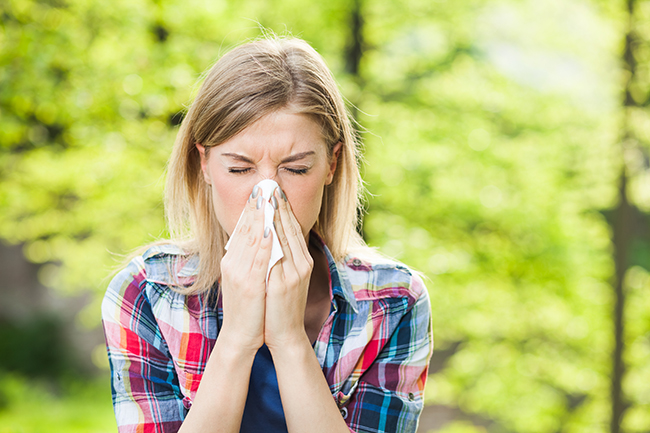Understanding Hay Fever and Your Allergy Treatment Options
Itchy eyes. Runny or stuffy nose. Sneezing. Do these symptoms sound familiar? If you’re experiencing these symptoms on a regular basis, there’s a chance that you’ve got hay fever. You’re not alone. As many as 60 million Americans suffer from hay fever, according to the American College of Allergy, Asthma & Immunology. There are ways to alleviate your suffering. The first step is understanding the condition.
Hay fever, also called allergic rhinitis, is your body’s reaction to an environmental trigger. The trigger can be tree pollen, grass pollen, or ragweed pollen. There are indoor triggers, too. Dust mites and pet dander can also spark an allergic reaction.

While the nasal congestion, runny nose, and sneezing resemble the symptoms of the cold, there are differences. A common cold will typically lead to nasal discharge that is thick and yellow, and may also come with a fever. But hay fever produces a thin, watery discharge and no fever. Allergies are also longer lasting. While a cold will clear up in a matter of days or a week, hay fever will last as long as you are exposed to the allergy trigger.
Some simple ways to alleviate your hay fever symptoms include using air conditioning, which will filter allergens from the air, the ACAAI suggests. You can reduce your exposure to dust mites by using mite-proof bedding on your mattress and pillowcases.
If your allergy symptoms persist, you may need the help of a medical professional. An allergy specialist can assess your symptoms and find the most appropriate way to manage your hay fever symptoms. For some patients, that’s prescription medication. For others, it’s allergy shots. Allergy & Asthma Associates of Allen has years of experience bringing allergy relief to patients. To learn more about your hay fever treatment options, contact us.
